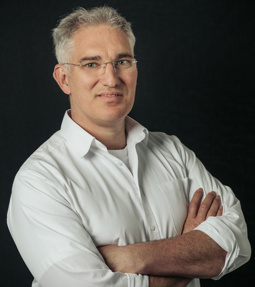The possibilities to access the molecular data of cells and tissues are increasing, but this also creates new challenges. How can one find the information needed for research when there is such an enormous amount of data, for example? The scientific program Medical Delta AI for Computational Life Sciences uses AI techniques to unlock biomedical data, discover new candidate drugs, detect special cell abnormalities or connections, and find useful information for research.
This opens new doors for scientific research into the human body and in particular the development and effect of new medicines.
‘Computational Life Sciences’ combines computer science and life science. Using AI techniques, Computational Life Sciences helps researchers better understand biological mechanisms and make predictions about interactions between molecules and cells and with drugs. In this way, it helps scientists search more specifically for the molecules and genes that are of interest for a particular biological study. It helps them clarify hypotheses and better predict what medicines must contain in order to work properly. This creates new opportunities for, among other things, drug development that can be carried out faster, more specifically and better.
Medical Delta Professor and Scientific Leader Prof. Dr. Boudewijn Lelieveldt compares this to putting a new space telescope into operation. “If it suddenly becomes possible to see much further than one ever thought was possible, an astronomer has to think carefully about where to aim the telescope. Otherwise, he or she would get lost in the infinite possibilities. With the help of AI techniques, Computational Life Sciences helps us search for the molecules and genes that are interesting for specific biological research and drug development.”
Leading scientists in the fields of bioinformatics, drug development, AI and computer science collaborate with pharmaceutical companies and with clinicians on the research projects within the program. In addition to the development and application of Computational Life Sciences with AI techniques in general, the program focuses on two lines of research: antibiotic resistance for tuberculosis and targeted medication for brain disorders.
Antibiotic resistance to tuberculosis
Tuberculosis is one of the deadliest infectious diseases in the world. Ten million people contract the disease every year, and 1.5 million of those people die (source: RIVM). A major problem in the fight against this disease is antibiotic resistance. Medical Delta AI for Computational Life Sciences wants to support research into antibiotic resistance with computer modelling and determine the effect of bacterial mutations by the use of algorithms, among other things. By gaining a better understanding of the mechanism of antibiotic resistance, the researchers hope to be able to search more specifically for ways to disrupt resistance and thus develop better candidate drugs.
Targeted medication for brain disorders
In the development of new medicines for brain disorders, it has proved difficult to translate data from laboratory animal research directly into the effects of medicines on humans. For example, the control of cells by genes differs between humans and mice. Medical Delta AI for Computational Life Sciences is looking for methods to convert research data correctly, so that the development phase of medicines runs faster and better.
Collaboration
In this program, scientists from Leiden University, LUMC, Erasmus University and TU Delft in the field of bioinformatics, drug development, AI and Computational Life Sciences work together with clinicians and pharmaceutical companies. Scientists from Erasmus MC are also involved in the program.






